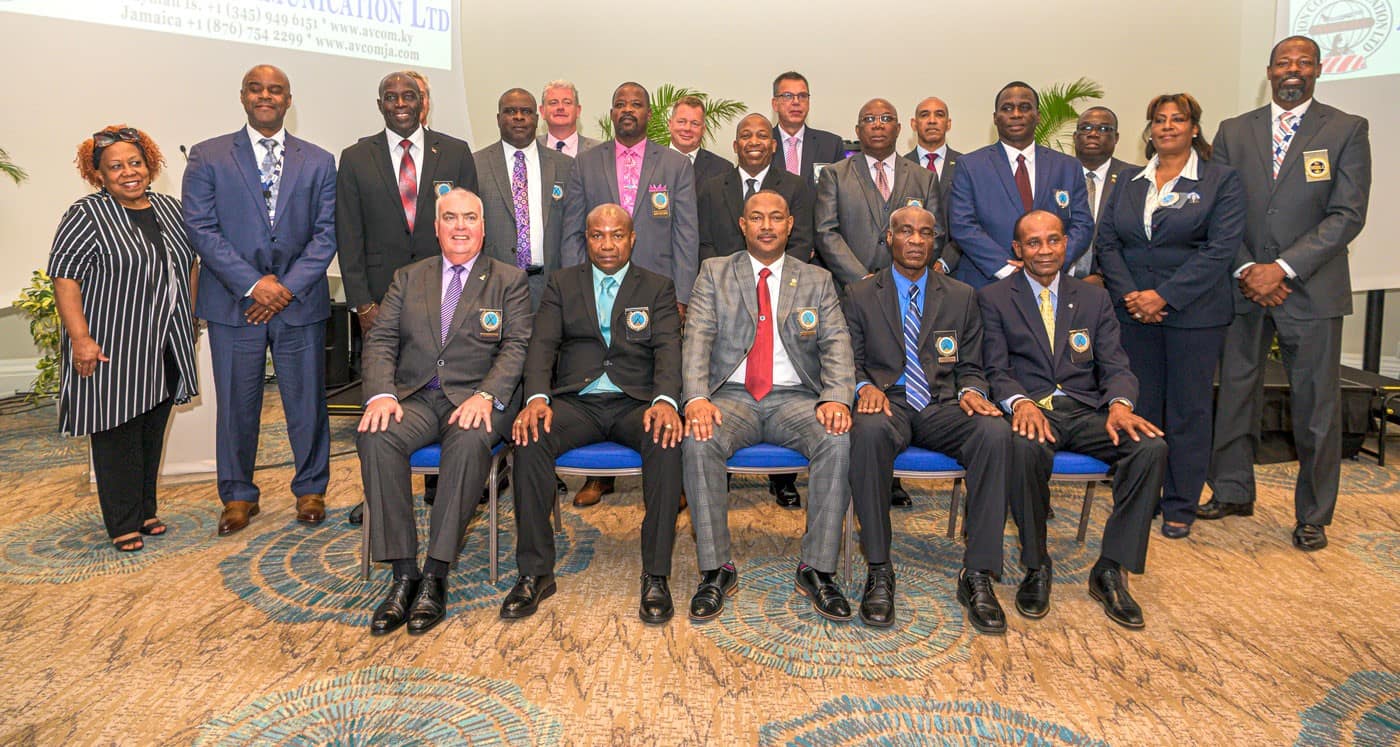
Caribbean police commissioners are meeting in Cayman this week to improve the effectiveness of regional policing in response to the changing threats from transnational crime.
In opening the 34th meeting of the Association of Caribbean Commissioners of Police, RCIPS Commissioner Derek Byrne called the theme of the event “a formidable task” in itself.
“It is precisely why we as a collective body of regional police and law enforcement leaders and industry partners come together as key influencers to review current threats, risks and challenges and to assess the impact on regional safety and security,” he said.
As new technologies allow criminal enterprises to become increasingly sprawling networks, traditional crimes have given way to more sophisticated, technical and multifaceted crimes that cross borders and require law enforcement agencies in the Caribbean to collaborate.
“Law enforcement regionally must adopt a more networked structure to disrupt and dismantle these criminal enterprises,” Byrne noted.
Knowing the adversaries and understanding how they are organized was key to developing a sound response to safety and security challenges. But following the money, confiscating criminal assets and dismantling criminal enterprises also required a new type of highly trained and educated police officer with a completely new set of skills, the commissioner added.
The annual conference brings together senior law enforcement policymakers, security professionals, government officials and industry partners to discuss crime and security challenges across the region.
First day speakers from the Federal Bureau of Investigations, the Drug Enforcement Administration and the investigations arm of the Department of Homeland Security underlined the critical nature of cross-border cooperation in dealing with drug trafficking and cybercrime.
FBI agent Scott Rottman said that as drug shipments originating from South America move North, they are broken down into smaller quantities which are more difficult to track. Most drug deliveries are transported by boat across the Pacific to Mexico. Less than a quarter of the illicit drug movements tracked by US law enforcement are going through the Caribbean.
Caribbean police commissioners meet for the 34th annual conference of their regional organisation at the Marriott Beach Resort this week, to find ways of improving the efficiency of their cooperation.
However, Caribbean partner nations in the maritime interdiction effort had contributed about 39% of the approximately 33 metric tons of illicit drugs that were seized in 2018.
In the Caribbean, major drug shipment routes are going through Jamaica, Hispaniola and Puerto Rico before making their way in smaller quantities through the Bahamas to the US, Brian Bonifante from the DEA said.
After five clandestine laboratories were detected in the Dominican Republic, he warned of a growing threat in the Caribbean from illegal opioids, such as fentanyl, which has ravaged communities in the United States.
As the US administration is directing its focus more strongly on its border with Mexico, Bonifante and Rottman expect activities to shift back to the Caribbean region.
Brian Herbert from Homeland Securities Investigations, in turn, argued that cybercrime, like the sale of illicit goods on the dark web, equally transcends borders.
With the dark web, distributors of illicit goods, like drugs and firearms, now have outreach to the whole world, not just one street corner, he said.
Cayman’s security situation improving
Governor Martyn Roper, who together with Cabinet has shared responsibility for Cayman’s security, said the regional dimension of policing was central to the success of police services and law enforcement agencies.
“We are proud of the progress made in the security situation in the islands in recent years. It is better today than it has been for many years,” he said, crediting the government for making the necessary resources available, the police services and partners across the region, particularly in Jamaica and the US.
The governor highlighted that Cayman is developing an increased capability for forensics, ballistics, cyber-cooperation, tackling illicit finance and air operations, together with a greater focus on community policing and more child safeguarding.
Premier Alden McLaughlin agreed that “here in the Cayman Islands we are on our way to reducing crime”. He praised the police commissioner’s willingness to engage with the elected officials and listen to the people. Cayman’s new approach included visible and responsive policing, while also recognizing the role that the communities themselves play in keeping the areas safe, he said.
Cayman had responded to new threats, from cybercrime to money laundering. And with the Cayman Islands coastguard up and running, and by combining the law enforcement units of immigration and customs into a single cohesive Customs and Border Control Agency, government had delivered changes to better secure Cayman’s borders and to reduce the threats from drugs, firearms and the illegal movement of people.
However, the premier also noted that community safety is not just a policing issue.
“I believe the most significant contribution to long-term crime reduction is the early identification of young people at risk of offending, and supporting them to make more positive choices about their future,” he said.
Advertise with the mоѕt vіѕіtеd nеwѕ ѕіtе іn Antigua!
We offer fully customizable and flexible digital marketing packages.
Contact us at [email protected]

















